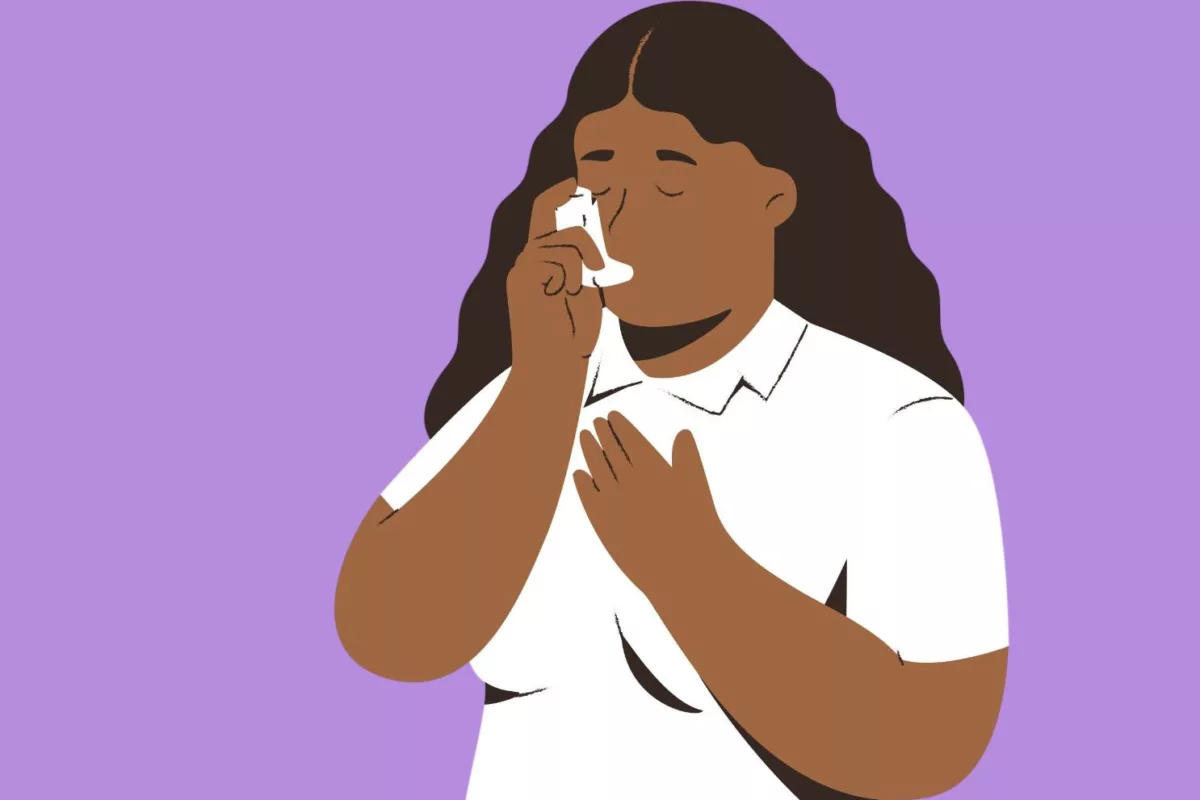
A new campaign launched on World Asthma Day will raise awareness about the wide gaps in
access to inhaled medicines that are causing a massive burden of suffering for the hundreds of
millions living with chronic lung diseases across the world, and significant economic costs.
The Increasing Access to Inhaled Medicines for COPD and Asthma campaign is an initiative of the
Forum of International Respiratory Societies (FIRS), which includes the world’s leading international
professional respiratory societies.
Asthma and COPD affect 652 million and kill 4.1 million people every year making them the third
highest cause of death globally, according to the Global Burden of Disease.
While both are manageable with inhaled medicines, without them patients struggle to lead normal lives and are at an increased risk of flare-ups, which can be distressing, disruptive, and life-threatening. Frequent hospital visits, lost school and work days, forfeited wages, and reduced productivity take a high economic toll.
For example, new estimates project that the global cumulative economic burden from COPD alone
will approach US$40 trillion by 2050, including US$24.35 trillion in direct medical costs and US$15.43
trillion in indirect costs from work disruptions. The authors conclude that by 2050, the impact of COPD will
become unsustainable under current healthcare and financial conditions and that there is an
“urgent need for effective interventions and policy changes, including by expanding access to
affordable treatments.”
However, a recent review found that inhaled corticosteroids, which are used for treatment of
asthma, were available and affordable in just 30% of pharmacies and 36% of hospitals. Less than 11%
of pharmacies and 5% of hospitals had long-acting combination inhalers for both COPD and asthma
– far below the global target of 80% facility availability of essential medicines for non-
communicable diseases (NCDs).
“It is unacceptable that more than two-thirds of pharmacies and hospitals in LMICS do not have
access to the most effective treatments for COPD and asthma: inhaled medicines. Furthermore,
where they are available, they are often unaffordable, costing more than a week’s wages for a
month’s supply. Patients often have no choice but to turn to much less effective and potentially
harmful treatments,” said Professor Guy Marks, President of FIRS and the International Union
Against Tuberculosis and Lung Disease (The Union).
People of all ages in all countries are affected, including children. Four in every ten people with
asthma are children under the age of 15 and half of all asthma deaths are among people under 70,
including 8,200 deaths among children under 15.
The burden is rising. Since 2000, the number of people living with chronic lung disease has risen by
27% and is forecast to double by 2050. Smoking, outdoor air pollution, and occupational exposures
are major risk factors.
Professor David Halpin, from the Global Initiative for Chronic Obstructive Lung Disease (GOLD) and
FIRS, commented, “Whilst acknowledging the importance of reducing exposure to risk factors to
reduce this burden, there is an urgent need to increase access to quality and effective inhaled
medicines that are affordable to patients currently suffering from these diseases.”
Success is possible. When the Government of Brazil made inhalers free, household asthma costs fell from 29% of income to 2% and the hospitalisation rate fell from 90 per 100,000 to 60 per 100,000 people. And children and adults living with asthma report the transformative impact of inhaled medicines in the latest Global Asthma Report, which includes 50 patient testimonies including this one from 9-year old Maryam in Nigeria. “A few years after my asthma symptomsbecame recurrent and I could no longer control them. … The consultant Pulmonologist added a maintenance inhaler consisting of budesonide and formoterol and taught me the correct techniques of using a spacer device and inhaler. Since then, I have achieved control as I go four to five months without having attacks. I am happier now, healthier, living a normal life and doing very well at school.”
The FIRS campaign is calling on governments, industry, global health agencies, and donors to invest
greater resources to increase access to inhaled medicines for COPD and asthma by addressing five
priority areas:
- Policy: Inclusion of the latest evidence-based inhalers in all global and national COPD and
asthma treatment guidelines, essential medicine lists, and UHC reimbursement lists - Product: Improved availability of recommended inhaled medicines by facilitating
registration, technology transfer, voluntary licensing agreements, and participation in the
WHO Prequalification Programme, Collaborative Registration Procedure, and other
programs - Price: Reductions in inhaler prices from bulk purchasing, pooled procurement,
tiered/differential pricing, generic alternatives, and other proven strategies - Primary Care: Increased training for primary healthcare providers to diagnose and manage
COPD and asthma, including improved access to spirometry and peak flow measurement
tools - Patient Advocacy: Investments in campaigns to increase community awareness of COPD
and asthma, and to destigmatize use of inhalers.
The campaign is targeting Heads of State, Ministers of Health and Finance, and global health leaders
who will convene at the 4th High-level Meeting of the United Nations (UN) General Assembly on the
Prevention and Control of Noncommunicable Diseases (NCDs) to agree a program of action.
“We are calling on all leaders to ensure that the wide gaps in access to quality, affordable, and
effective inhaled medicines for COPD and asthma are acknowledged at the High-level Meeting, and
that the Political Declaration supports special measures to increase access to these essential NCD
medicines,” said Professor Heather Zar, Chair, Department of Paediatrics and Child Health, University of Cape Town and FIRS member.
With five years left to achieve the Sustainable Development Goals (SDGs) and only 19 countries on
track to achieve SDG 3.4, now is the time to secure access to quality, affordable, and effective
inhaled medicines for children and adults living with chronic respiratory diseases.
Katie Dain, CEO of the NCD Alliance, said that increasing access to inhaled medicines for COPD and
asthma is part of a larger effort to ensure access to essential medicines for all people living with
NCDs. “The world is far off-track in meeting global targets for UHC and access to essential
medicines and supplies for NCDs, widening health inequities between and within countries. We
need political will and collaboration across sectors to close the access gap and transition from the
current reality of ‘health for some’ to our shared vision of ‘health for all’.”
José Luis Castro, WHO Director-General Special Envoy for Chronic Respiratory Diseases, highlighted
an essential focus for this pivotal year, “Increasing access to inhaled medicines must be at the
forefront of our efforts to address the growing burden of chronic respiratory diseases. However, it’s
also crucial to strengthen primary healthcare systems. This will ensure that people are accurately
diagnosed and that medicines are delivered efficiently.”
He added, “By prioritizing both access to medicines and robust healthcare systems, countries can
not only meet their SDG and NCD Action Plan targets but also enjoy significant economic benefits,
including improved education and increased participation in the labor market.”
In celebration of World Asthma Day 2025, the Global Initiative for Asthma (GINA) has chosen the
theme “Make Inhaled Treatments Accessible for ALL.” GINA emphasizes the need to ensure that
people with asthma can access inhaled medications that are essential both for controlling the
underlying disease and for treating attacks.
This Statement was developed by the FIRS Working Group on Increasing Access to Inhaled Medicines for COPD and Asthma led by Professors David Halpin, Fellow, Royal College Physicians, Member, British Thoracic Society (BTS), European Respiratory Society (ERS), American Thoracic Society (ATS), International Union Against Tuberculosis and Lung Disease (The Union), Member of Board of Directors of Global Initiative for Chronic Obstructive Lung Disease (GOLD), and Professor, University of Exeter, United Kingdom; Guy Marks, President, The Union, Board of Directors, NCD Alliance, President, FIRS, Professor, UNSW Sydney, and Honorary Professor, University of Sydney, Australia; and Heather Zar, Professor and Chair, Department of Paediatrics and Child Health, University of Cape Town, South Africa.
All media inquiries: Leith Greenslade, leith@justactions.org
FIRS members include American College Chest Physicians, American Thoracic Society, Asian Pacific Society of Respirology, Asociación Latino Americana De Tórax, European Respiratory Society, International Union Against Tuberculosis and Lung Disease, Global Initiative for Asthma, Global Initiative for Chronic Obstructive Lung Disease, and Pan African Thoracic Society.
